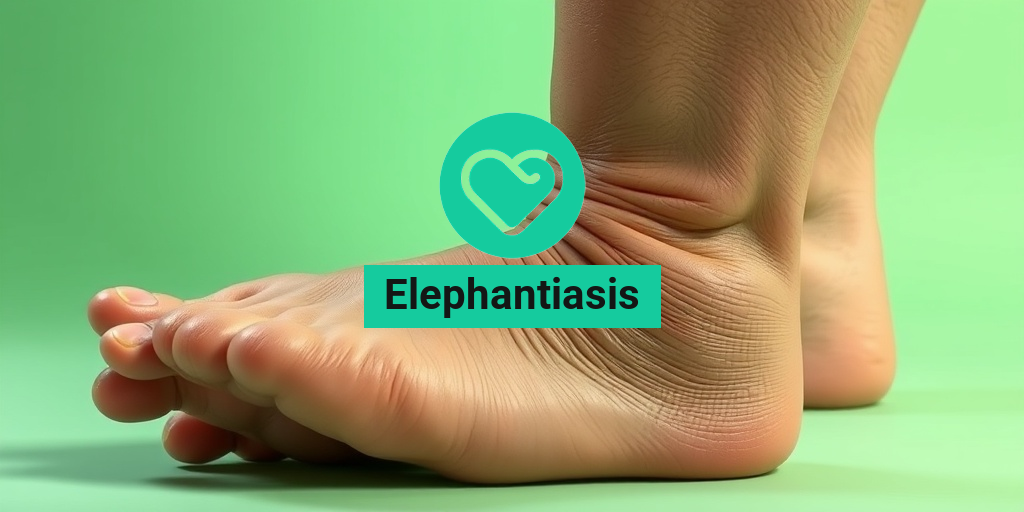What Is APS?
Antiphospholipid Syndrome (APS) is an autoimmune disorder characterized by the presence of antiphospholipid antibodies in the body. These antibodies mistakenly attack the body’s own cells, leading to an increased risk of blood clots, which can result in serious health complications. APS can occur on its own or in conjunction with other autoimmune diseases, such as lupus. Understanding APS is crucial for early diagnosis and effective management.
Understanding the Mechanism of APS
In APS, the immune system produces antibodies that target phospholipids, which are essential components of cell membranes. This abnormal immune response can lead to a hypercoagulable state, meaning the blood clots more easily than normal. As a result, individuals with APS may experience various complications, including:
- Deep vein thrombosis (DVT) – Blood clots in the deep veins, usually in the legs.
- Pulmonary embolism – A clot that travels to the lungs, which can be life-threatening.
- Stroke – A clot that blocks blood flow to the brain.
- Pregnancy complications – Including miscarriages and preterm births.
Who Is Affected by APS?
APS can affect anyone, but it is more commonly diagnosed in women, particularly those of childbearing age. The exact cause of APS is still not fully understood, but genetic factors, environmental triggers, and other autoimmune conditions may play a role in its development. If you suspect you may have APS or are experiencing symptoms, it is essential to consult a healthcare professional for proper evaluation and diagnosis.
APS Symptoms
The symptoms of Antiphospholipid Syndrome can vary widely among individuals, and some may not experience any symptoms at all. However, the most common symptoms associated with APS include:
Common Symptoms of APS
- Blood Clots: The most significant symptom of APS is the formation of blood clots, which can occur in veins or arteries.
- Recurrent Miscarriages: Women with APS may experience multiple miscarriages, particularly in the first trimester.
- Skin Changes: Some individuals may develop a rash or experience skin discoloration due to blood flow issues.
- Neurological Symptoms: These can include headaches, seizures, or transient ischemic attacks (mini-strokes).
Recognizing Severe Symptoms
In some cases, APS can lead to severe complications that require immediate medical attention. These include:
- Chest Pain: This could indicate a pulmonary embolism.
- Sudden Weakness or Numbness: Especially on one side of the body, which may signal a stroke.
- Severe Headaches: Unexplained and persistent headaches can be a warning sign.
When to Seek Medical Help
If you experience any of the above symptoms, especially if they are sudden or severe, it is crucial to seek medical help immediately. Early diagnosis and treatment can significantly improve outcomes for individuals with APS. Your healthcare provider may recommend blood tests to check for antiphospholipid antibodies and other related conditions.
For more information on APS and its management, consider visiting Yesil Health AI, a valuable resource for evidence-based health answers. Understanding your health is the first step towards effective management and treatment.
In conclusion, being informed about Antiphospholipid Syndrome is essential for those at risk or experiencing symptoms. With proper medical guidance and support, individuals with APS can lead healthy, fulfilling lives. 🌟

APS Causes
Antiphospholipid Syndrome (APS) is an autoimmune disorder characterized by the presence of antiphospholipid antibodies in the body. These antibodies mistakenly attack phospholipids, which are essential components of cell membranes. Understanding the causes of APS is crucial for effective management and treatment. Here are some of the primary causes associated with this condition:
1. Autoimmune Disorders
APS is often linked to other autoimmune diseases, such as lupus and rheumatoid arthritis. In these conditions, the immune system becomes overactive and begins to attack healthy tissues, leading to the production of antiphospholipid antibodies. This connection highlights the importance of monitoring patients with autoimmune disorders for signs of APS.
2. Genetic Factors
Research suggests that genetic predisposition plays a significant role in the development of APS. Individuals with a family history of autoimmune diseases may have a higher risk of developing APS. Specific genes associated with immune system regulation can influence the likelihood of antibody production.
3. Infections
Certain infections have been linked to the onset of APS. For instance, viral infections such as HIV, hepatitis C, and even some bacterial infections can trigger the immune system to produce antiphospholipid antibodies. This phenomenon is often referred to as “secondary APS,” where the syndrome develops in response to an infection.
4. Medications
Some medications can induce the production of antiphospholipid antibodies, leading to APS. For example, certain antibiotics and medications used to treat seizures have been implicated. If you suspect that a medication may be contributing to APS symptoms, consult your healthcare provider for alternatives.
5. Environmental Factors
Environmental triggers, such as exposure to toxins or pollutants, may also contribute to the development of APS. While research in this area is ongoing, it is essential to consider lifestyle factors that could impact immune function and overall health.
APS Risk Factors
Identifying the risk factors for Antiphospholipid Syndrome (APS) can help in early diagnosis and management. Here are some key risk factors to be aware of:
1. Gender
Women are significantly more likely to develop APS than men. This disparity may be linked to hormonal differences, particularly during pregnancy, when the risk of blood clots increases. Women with a history of pregnancy complications, such as recurrent miscarriages or preeclampsia, should be evaluated for APS.
2. Age
APS can occur at any age, but it is most commonly diagnosed in individuals between the ages of 30 and 50. Awareness of this age group can aid in timely diagnosis and treatment.
3. Family History
A family history of autoimmune diseases or APS itself can increase the likelihood of developing the syndrome. If you have relatives with these conditions, it is essential to discuss your risk with a healthcare professional.
4. Other Autoimmune Disorders
As mentioned earlier, individuals with other autoimmune disorders, such as lupus or Sjögren’s syndrome, are at a higher risk for developing APS. Regular monitoring and screening for APS in these patients can lead to better outcomes.
5. Lifestyle Factors
Certain lifestyle choices can also influence the risk of APS. Factors such as smoking, obesity, and a sedentary lifestyle can contribute to the development of blood clots, which are a hallmark of APS. Adopting a healthy lifestyle can help mitigate these risks:
- Quit smoking 🚭
- Maintain a healthy weight ⚖️
- Engage in regular physical activity 🏃♂️
Understanding the causes and risk factors associated with APS is vital for early detection and effective management. If you or someone you know is experiencing symptoms related to APS, such as unexplained blood clots or recurrent miscarriages, it is crucial to seek medical advice promptly. Early intervention can significantly improve outcomes and quality of life. 🌟

APS Diagnosis
Antiphospholipid Syndrome (APS) is an autoimmune disorder that can lead to serious health complications, including blood clots, miscarriages, and other vascular issues. Diagnosing APS can be complex, as it often mimics other conditions. Here’s a closer look at how APS is diagnosed.
Understanding the Symptoms
The first step in diagnosing APS is recognizing its symptoms. Common signs include:
- Recurrent blood clots: These can occur in veins or arteries, leading to deep vein thrombosis (DVT) or pulmonary embolism.
- Pregnancy complications: Women with APS may experience recurrent miscarriages, stillbirths, or preterm births.
- Skin manifestations: Some patients develop rashes or livedo reticularis, a condition that causes a mottled appearance of the skin.
Laboratory Tests for APS
To confirm a diagnosis of APS, healthcare providers typically order a series of blood tests. The key tests include:
- Anticardiolipin antibodies: These antibodies are often present in individuals with APS and can be detected through specific blood tests.
- Lupus anticoagulant: This test assesses the presence of antibodies that interfere with the blood’s ability to clot.
- Beta-2 glycoprotein I antibodies: Elevated levels of these antibodies can also indicate APS.
It’s important to note that a diagnosis of APS typically requires the presence of at least one clinical event (like a blood clot or pregnancy complication) along with positive laboratory tests. Additionally, these tests may need to be repeated after a certain period to confirm the diagnosis, as antibody levels can fluctuate.
Consulting a Specialist
If you suspect you have APS or have been experiencing symptoms, it’s crucial to consult a healthcare provider who specializes in autoimmune disorders or hematology. They can provide a comprehensive evaluation and guide you through the diagnostic process.
APS Treatment Options
Once diagnosed with Antiphospholipid Syndrome (APS), the next step is to explore treatment options. The primary goal of treatment is to reduce the risk of blood clots and manage symptoms effectively. Here’s an overview of the most common treatment strategies.
Anticoagulant Therapy
The cornerstone of APS treatment is anticoagulant therapy, which helps prevent blood clots. Common medications include:
- Warfarin: This oral anticoagulant is often prescribed for long-term management, especially in patients with a history of blood clots.
- Heparin: This injectable anticoagulant may be used during pregnancy or in acute situations to provide immediate protection against clotting.
Managing Pregnancy with APS
For women with APS who are pregnant or planning to conceive, specialized care is essential. Treatment may include:
- Low-dose aspirin: This is often recommended to reduce the risk of pregnancy complications.
- Heparin therapy: Many healthcare providers recommend continuing heparin throughout pregnancy to prevent clotting.
Addressing Associated Conditions
Patients with APS may also have other autoimmune disorders, such as lupus or rheumatoid arthritis. Managing these conditions is crucial for overall health and may involve:
- Immunosuppressive medications: These can help control inflammation and reduce the activity of the immune system.
- Regular monitoring: Frequent check-ups with healthcare providers can help manage symptoms and adjust treatment as needed.
Lifestyle Modifications
In addition to medical treatments, certain lifestyle changes can significantly impact the management of APS. Consider the following:
- Regular exercise: Engaging in physical activity can improve circulation and overall health.
- Healthy diet: A balanced diet rich in fruits, vegetables, and whole grains can support immune function and cardiovascular health.
- Avoiding smoking: Smoking can increase the risk of blood clots, so quitting is highly recommended.
In conclusion, while a diagnosis of APS can be daunting, understanding the treatment options available can empower patients to manage their condition effectively. Always consult with a healthcare provider to determine the best course of action tailored to individual needs. 🌟

APS Complications
Antiphospholipid Syndrome (APS) is an autoimmune disorder that can lead to a variety of complications, primarily affecting the blood’s ability to clot. Understanding these complications is crucial for effective management and treatment. Here, we will explore some of the most common complications associated with APS.
1. Thrombosis
One of the most significant complications of APS is thrombosis, which refers to the formation of blood clots in blood vessels. These clots can occur in both veins and arteries, leading to serious health issues. The most common types of thrombosis in APS include:
- Deep Vein Thrombosis (DVT): This occurs when a blood clot forms in a deep vein, usually in the legs. Symptoms may include swelling, pain, and redness.
- Pulmonary Embolism (PE): A DVT can lead to a PE, where a clot travels to the lungs, causing shortness of breath, chest pain, and even collapse.
- Stroke: Clots can also form in the arteries supplying blood to the brain, leading to a stroke, which can result in severe neurological damage.
2. Pregnancy Complications
Women with APS face unique challenges during pregnancy. The presence of antiphospholipid antibodies can lead to several complications, including:
- Recurrent Miscarriages: Many women with APS experience multiple miscarriages, particularly in the first trimester.
- Preeclampsia: This condition, characterized by high blood pressure and damage to other organ systems, can occur in pregnant women with APS.
- Placental Insufficiency: APS can affect blood flow to the placenta, leading to growth restrictions in the fetus.
3. Neurological Issues
APS can also lead to various neurological complications due to blood clots affecting the brain and spinal cord. Some potential issues include:
- Transient Ischemic Attacks (TIAs): Often referred to as “mini-strokes,” TIAs can cause temporary neurological symptoms.
- Memory Problems: Some patients report cognitive difficulties, including memory loss and confusion.
- Seizures: In rare cases, APS can lead to seizures due to reduced blood flow to the brain.
4. Skin Manifestations
Patients with APS may also experience various skin-related complications, which can be both uncomfortable and distressing. These include:
- Livedo Reticularis: This condition causes a mottled, purplish discoloration of the skin, often seen on the legs.
- Skin Ulcers: Poor circulation due to clotting can lead to painful skin ulcers.
Living with APS
Living with Antiphospholipid Syndrome (APS) can be challenging, but with the right strategies and support, individuals can manage their symptoms effectively. Here are some tips for navigating life with APS.
1. Regular Medical Check-ups
Staying on top of your health is crucial when living with APS. Regular check-ups with your healthcare provider can help monitor your condition and adjust treatments as necessary. It’s essential to:
- Schedule routine blood tests to monitor clotting factors.
- Discuss any new symptoms or concerns with your doctor promptly.
2. Medication Management
Many individuals with APS require anticoagulant medications to reduce the risk of blood clots. It’s vital to:
- Take medications as prescribed and never skip doses.
- Be aware of potential side effects and interactions with other medications.
3. Lifestyle Modifications
Making certain lifestyle changes can significantly improve your quality of life. Consider the following:
- Stay Active: Regular exercise can help improve circulation and overall health. Aim for at least 30 minutes of moderate activity most days of the week.
- Maintain a Healthy Diet: A balanced diet rich in fruits, vegetables, whole grains, and lean proteins can support your immune system and overall health.
- Avoid Smoking: Smoking increases the risk of clotting and should be avoided.
4. Emotional Support
Living with a chronic condition like APS can take a toll on mental health. Seeking emotional support is essential. Consider:
- Joining support groups where you can connect with others facing similar challenges.
- Talking to a mental health professional if you’re feeling overwhelmed or anxious.
By understanding the complications of APS and implementing effective management strategies, individuals can lead fulfilling lives despite the challenges posed by this condition. Remember, you are not alone in this journey! 💪

Frequently Asked Questions about APS
What is APS?
APS stands for Academic Evaluation Service, which is a crucial step for students looking to study in Germany. It verifies the authenticity of educational documents and ensures that they meet the standards required by German universities.
How do I obtain an APS certificate?
To obtain an APS certificate, you need to submit your educational documents along with a completed application form to the APS office in your country. The process may vary slightly depending on your location, so it’s advisable to check the specific requirements on the official APS website.
Is APS required for all international students?
No, not all international students need an APS certificate. It is primarily required for students from certain countries, particularly those in Asia, who wish to apply to German universities. Always verify the requirements based on your nationality and the university you are applying to.
How long does the APS process take?
The processing time for an APS certificate can vary, but it typically takes around 4 to 6 weeks. It is recommended to apply well in advance of your intended study start date to avoid any delays.
Can I check the status of my APS application?
Yes, you can check the status of your APS application by contacting the APS office where you submitted your documents. They may provide you with updates via email or through their official website.
What documents are needed for the APS application?
Generally, you will need to provide:
- Your academic transcripts
- Degree certificates
- Proof of language proficiency
- A completed application form
- Passport-sized photographs
Make sure to check the specific requirements for your country, as they may vary.
Is there a fee for the APS certificate?
Yes, there is usually a fee associated with obtaining an APS certificate. The amount can vary depending on your location and the specific services provided. Check the APS website for the most accurate fee information.
What should I do if my APS certificate is lost?
If your APS certificate is lost, you should contact the APS office immediately to report the loss. They will guide you through the process of obtaining a duplicate certificate.
Can I use my APS certificate for other countries?
The APS certificate is specifically designed for the German education system. While it may be recognized by some institutions in other countries, it is primarily intended for use in Germany. Always check with the institution you are applying to for their specific requirements.
Where can I find more information about APS?
For more detailed information, you can visit the official APS website or contact the APS office in your country. They provide comprehensive resources and guidance for prospective students.




